Experiential Learning
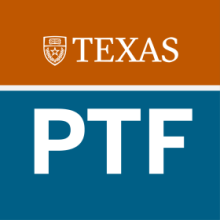
Scientific and Technical Writing for Experiential Learners and Instructors
Every writer needs a toolkit tailored to their profession or discipline. Student and instructor needs are not being met as it pertains to training and support for the development of scientific and technical writers.

Improving Learning, Prioritizing Student Engagement, and Enhancing Identity Formation Through Hands-on Classroom Demonstrations
This project studies the benefits of implementing tailored hands-on experimental classroom demonstrations to highlight real-world applications of concepts in lecture-based courses. The motivation for this work stems from the limited opportunities undergraduate engineering students have to visualize contemporary applications discussed in core courses as well as to develop engineering-based intuition before the junior year.

Collaborative Learning Between Designers & Developers
User experience (UX) designers in industry create design prototypes and hand them off to software developers to implement in code which is returned to the designers for feedback. Typically, designers follow an iterative cycle comprising the circle of design, prototype, and test. This cycle is repeated until the product meets the desired user experience.
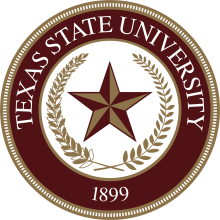
Faculty Statistics Seminar (Texas State University)
PTF Layla Guyot gave an invited presentation at the weekly statistics seminar at Texas State University, to an audience of primarily faculty. In her talk Guyot discussed promoting the use of a local open data portal for data science projects.
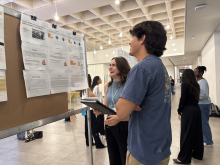
Applications of Data Science with City Datasets: Poster Session at UT Austin
On April 30, 2025, Guyot hosted a public poster session showcasing student projects focusing on datasets from the City of Austin Open Data Portal, held at the University of Texas at Austin. Projects ranged widely in focus, from environmental data to transportation and public safety, demonstrating the breadth of student inquiry and analysis.

Podcasting, Performance, and Pedagogy (Sententiae Antiquae)
PTF Deborah Beck and her PTF Initiative were featured as a guest post of Sententiae Antiquae, a scholarly Classics blog with over 27,000 readers.
In the post Beck describes some of the reasons for and benefits of using podcasting as a tool for learning in Classics courses:

Promoting the use of open data for data science projects (Open Data Day)
PTF Layla Guyot presented a session at Open Data Day in March 2024, hosted by the Austin Public Library. This event was part of International Open Data Day, which celebrates open government data with events hosted around the globe. Guyot presented about promoting the use of a local open data portal for data science projects with her collaborator, former student/current UGCA Dustyn Ransom.
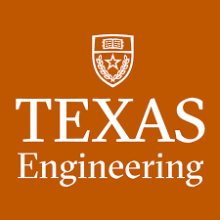
Additional Grant Funding (Cockrell School of Engineering)
Alongside Dr. Berkin Dortdivanlioglu, PTF Krishna Kumar received a grant from the Cockrell School of Engineering to use AI for personalized tutors in their introduction to programming course. They have since built a personalized tutor for this course, which is available for students privately. They are now in the process of making the tutor public through the Texas Advanced Computing Center (TACC).

City of Austin DIVE Meetup
Nine students from PTF Layla Guyot's Elements of Data Science course were selected to virtually present the insights gained during their coursework to the Data, Impact, Visuals, and Exploration (DIVE) meetup organized by the City of Austin.
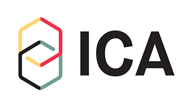
Bridging the Internship Gap: Preliminary Findings from the Internship Project (International Communication Association)
PTF Wenhong Chen presented a paper at the International Communication Association 2023 Conference in Toronto, Ontario, Canada in June 2023.

